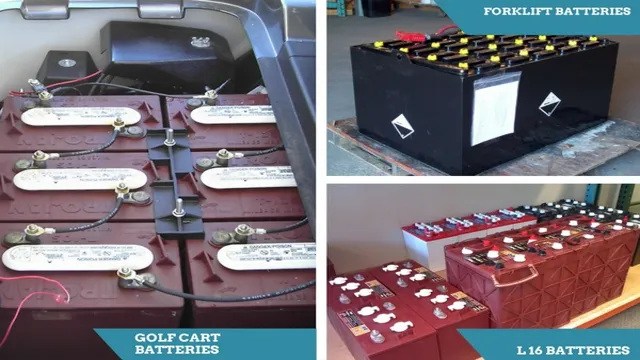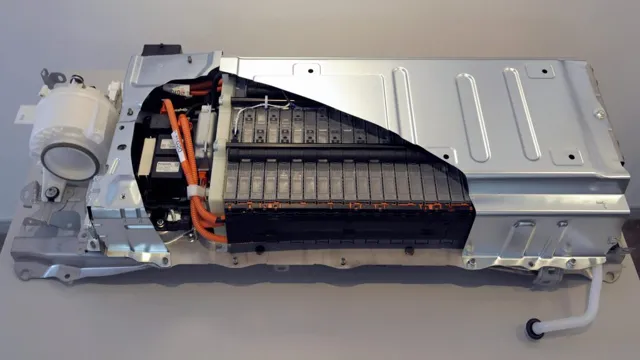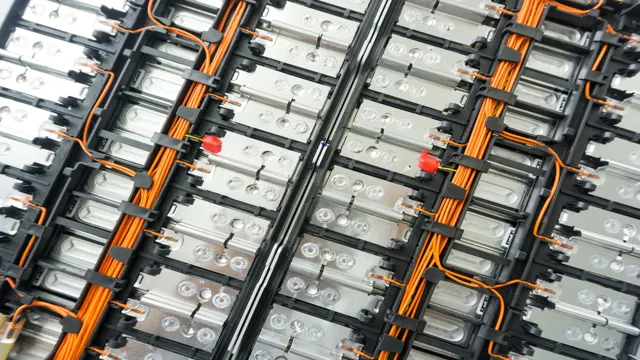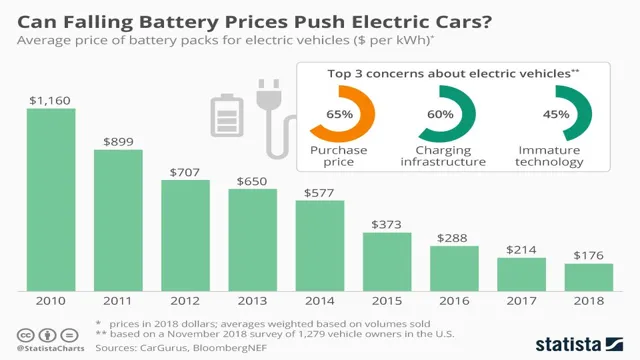The Ugly Truth Behind Electric Car Battery Production: Exposing the Dark Reality of Slave Labor
Electric cars have been touted as the solution to our pollution problems. These cars have become increasingly popular due to their low CO2 emissions during operation. However, what many people don’t realize is that the production of electric car batteries is not without its flaws.
In fact, many of the batteries powering electric cars are made using what can only be described as slave labor. The production of electric car batteries requires the use of cobalt, which is found in the Democratic Republic of Congo. Unfortunately, cobalt mining in this region is plagued by issues such as child labor and forced labor.
These workers live in extreme poverty with no access to healthcare or education. Many people find it ironic that a car designed to help reduce carbon emissions is being produced through the exploitation of the world’s poorest people. Nevertheless, the demand for electric cars is increasing, and production is expected to grow in the coming years.
The question remains: can we truly be environmentally conscious while simultaneously overlooking the suffering of others? This is not an easy question to answer, but one thing is clear – the production of electric car batteries must be addressed if we are to create a sustainable future for our planet.
The Dark Side of the Electric Car Revolution
As the electric car revolution continues to gain momentum, more and more people are questioning the ethics of the industry. One of the most troubling issues in this regard is the use of slave labor in the production of electric car batteries. Many of the materials used in these batteries are sourced from countries that have a history of exploiting labor for low wages and little to no benefits.
This has led to the rise of a new kind of electric car battery slave labor, where workers are forced to work long hours in dangerous conditions in order to produce the materials that power our cars. While many companies claim to be taking steps to address this issue, it is clear that much more needs to be done to ensure that the electric car industry is truly ethical and sustainable.
Exploring the Reality of Electric Car Production
Electric Car Production The electric car revolution has brought about many positive changes in the automotive industry, but there is a dark side to it as well. The production of electric cars requires large amounts of minerals and metals, such as lithium and cobalt, which are often mined in environmentally damaging ways. Additionally, the production of electric car batteries creates a significant amount of greenhouse gas emissions, increasing the carbon footprint of the vehicles before they even hit the road.
On top of that, the disposal of old batteries, which have a limited lifespan, raises concerns about toxic waste and recycling capabilities. As consumers, it’s important to understand not only the benefits but also the consequences of electric car production and usage. While electric cars offer a greener alternative, the reality is that the production process also has a negative impact on the environment.
As we continue to push for sustainable transportation options, it’s crucial that we prioritize research and development into more eco-friendly electric car production methods.

Impact of Lithium-ion Battery Demand on Labor
The electric car revolution has had a significant impact on the world, and the demand for lithium-ion batteries is at an all-time high. However, there is a dark side to this phenomenon that is often overlooked: the impact on labor. As the demand for these batteries increases, so too does the need for workers to mine the necessary metals, assemble the batteries, and dispose of them once they have reached the end of their lifespan.
Unfortunately, there are many reports of labor abuses and poor working conditions in the mines and factories where these batteries are produced. Workers are often exposed to dangerous chemicals and subjected to long hours and low pay. Furthermore, many of the countries where these batteries are produced lack strong labor protections and the power to enforce them.
It’s essential that consumers, policymakers, and manufacturers take steps to ensure that the drive towards renewable energy sources doesn’t come at the cost of worker exploitation and abuse.
The Role of Corporations in Exploitation
The exploitation of labor in the electric car battery industry is a controversial issue that has gained increasing attention in recent years. Large corporations that manufacture electric car batteries, such as Tesla and Apple, have been accused of using slave labor to source the materials needed to produce their products. The use of child labor, low wages, and poor working conditions in countries like the Democratic Republic of Congo has raised concerns regarding the ethical responsibility of these corporations when it comes to human rights.
However, some argue that it is unfair to solely blame these corporations, as they have no control over the labor practices of their suppliers. Ultimately, it is essential for corporations to take responsibility for the ethical practices of their supply chains and ensure that they are not contributing to the exploitation of vulnerable workers. Through measures such as transparent supply chains, minimum wage guarantees, and safe working conditions, corporations can ensure that their products are not made at the expense of human rights.
Examining Corporate Practices and Accountability
When it comes to exploitation, corporations often play a huge role. From using cheap labor in developing countries to supporting leaders and political regimes that advance their interests at the expense of citizens, many corporations have exploited people and resources in pursuit of profit. And while some companies have taken steps to address these issues, many still turn a blind eye or actively participate in exploitation.
One of the main ways that corporations contribute to exploitation is through their supply chains. For example, companies may buy raw materials or finished products from suppliers who use child labor or pay workers unfair wages. And while some companies may claim that they have no way of knowing about these practices, the truth is that they often turn a blind eye in order to keep costs low and profits high.
But it’s not just labor practices that can be exploitative. Corporations may also contribute to environmental destruction and human rights abuses, all in the name of profit. For example, mining companies operating in developing countries may contaminate water sources or displace indigenous populations in order to extract resources.
And while some companies may make efforts to mitigate these impacts, many continue to prioritize their bottom line over the well-being of people and the planet. Overall, it’s clear that corporations have a significant role to play when it comes to exploitation. While there are some companies that are taking steps to address these issues, there is still a long way to go.
It’s up to all of us, as consumers and citizens, to hold corporations accountable and demand that they prioritize people and the planet over profit.
Links Between Electric Car Brands and Labor Exploitation
When it comes to the electric car industry, there have been concerns around labor exploitation. Many electric car brands outsource their production to countries that have less stringent labor laws and regulations. This creates a situation in which workers are paid low wages and work long hours to meet the demand for these vehicles.
The role of corporations in labor exploitation cannot be underestimated, as their focus on profit often comes at the expense of the workers who are producing their products. It is crucial for corporations to take responsibility for the treatment of their workers and ensure that they are paid a fair wage and are working in safe and healthy conditions. By doing this, electric car brands can create a sustainable and ethical production process that benefits both the workers and the consumers who purchase their products.
Worker Perspectives and Challenges
When it comes to worker perspectives and challenges, the role of corporations in exploitation cannot be ignored. Many corporations prioritize profits over the well-being and fair treatment of their workers. This often leads to poor working conditions, low wages, and long hours without any overtime pay.
In some cases, corporations may even use child labor and force workers into unfair contracts. All of these practices are exploitative and contribute to the perpetuation of poverty and inequality. It is essential for corporations to take responsibility for the actions they take and prioritize the fair treatment of their workers.
By doing so, they can help create a more equitable and just society where workers are valued and treated with dignity.
Addressing the Issue
The electric car industry has been under scrutiny over the years, with accusations of using slave labor to mine the materials required for batteries. This issue has raised alarm among consumers, and rightfully so. It is disturbing to think that the production of clean energy vehicles has come at a high human cost, with children and adults alike being forced to work in dangerous conditions.
The reality is that many of the minerals required for batteries, such as cobalt and lithium, are found in countries where labor laws are less strict. The good news is that many companies are taking steps to address this issue. For instance, major automakers are working with their suppliers to ensure that they comply with ethical labor practices.
Additionally, some companies are seeking to develop alternative battery technologies that require fewer, if any, of these minerals. It is crucial that the industry as a whole works towards a more sustainable and ethical future, and we as consumers can play a crucial role in driving this change by insisting on transparency and ethical practices in the production line. After all, the decision to purchase an electric car should not come at the cost of human suffering.
Potential Solutions and Alternatives to Exploitative Practices
One potential solution to address exploitative practices is to improve legal frameworks that protect the rights of workers and ensure fair working conditions. Governments and organizations must enact and enforce legislation that guarantees fair wages, benefits, and working conditions for all employees. Additionally, implementing measures like regular inspections, investigations, and penalizing violators can help deter companies from exploiting workers.
Another alternative is to encourage and support businesses that follow ethical and sustainable practices, such as providing workers with safe and healthy working environments, respecting their fundamental rights, and promoting diversity and inclusion in the workplace. This can be achieved by creating consumer awareness and by offering incentives for companies that adopt ethical practices. Overall, it is crucial to recognize and address exploitative practices to promote fairness and equity for all.
Advocacy and Activism in the Electric Car Industry
In recent years, advocacy and activism have become increasingly important in the electric car industry. As more and more people become educated about the environmental benefits of electric vehicles, they are pushing for greater availability and affordability of these cars. Many advocates are also pushing for more investment in charging infrastructure, both at home and on the road.
Activists are also calling for increased government incentives and regulations to support the growth of electric cars and reduce the use of fossil fuels. Despite these efforts, however, there are still many obstacles to widespread adoption of electric cars, including high costs, range anxiety, and a lack of infrastructure in many areas. Nonetheless, advocates and activists are continuing to work tirelessly to address these issues and promote the use of electric vehicles as a key part of a sustainable future.
Conclusion
In conclusion, the issue of electric car battery slave labor is a sobering reminder that progress often comes with a price. While we celebrate the environmental benefits of electric vehicles, it’s important to examine the human cost of our desire for a cleaner future. As consumers, we have the power to demand ethically sourced materials and hold companies accountable for their supply chain practices.
After all, true progress is not just about preserving the planet, but also protecting the people who call it home. So, let’s charge forward with a conscience and drive change that benefits everyone.”
FAQs
What impact does the production of electric car batteries have on slave labor?
The production of electric car batteries can have a negative impact on slave labor, as many of the minerals used in these batteries, such as cobalt, are often mined using forced or child labor in countries like the Democratic Republic of Congo.
How can consumers ensure the electric car batteries they purchase are not linked to slave labor?
Consumers can ensure the electric car batteries they purchase are not linked to slave labor by doing research on the companies they are buying from and looking for certifications or evidence of responsible sourcing practices.
What steps are being taken by the electric car industry to address the issue of slave labor in battery production?
Some companies in the electric car industry are taking steps to address the issue of slave labor in battery production, such as implementing stronger supply chain auditing processes and investing in alternative battery materials that do not rely on minerals linked to forced or child labor.
How can governments play a role in preventing slave labor in electric car battery production?
Governments can play a role in preventing slave labor in electric car battery production by implementing regulations and laws that require companies to disclose their supply chains and ensure responsible sourcing practices, as well as engaging in diplomatic efforts to encourage countries where forced or child labor is prevalent to address these issues.





